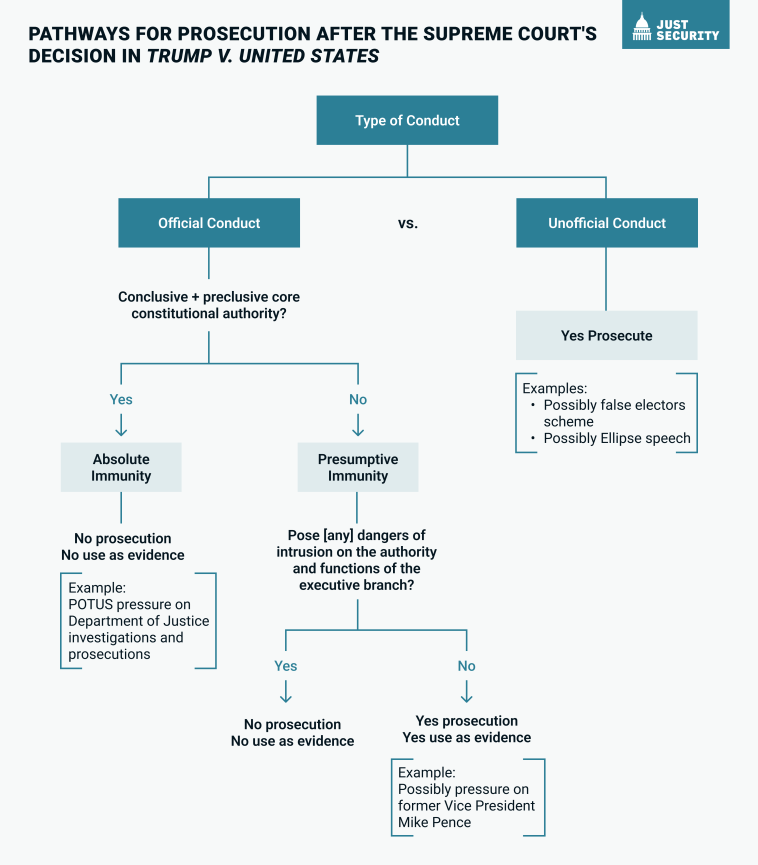
Understanding the Rise of Online Human Verification
The digital age has brought with it a series of challenging legal and technological issues that continue to shape our everyday interactions on the web. One such issue is the increasing reliance on online human verification systems. Recently, many widely recognized websites—such as those found in legal reference contexts—have incorporated sophisticated verification systems to confirm that users are indeed human. This opinion piece explores the legal ramifications and the subtle details of these security measures, with special attention paid to the methods and processes deployed by services like Cloudflare.
At its core, the verification system is a testament to the evolution of digital security. However, the process is not without its tricky parts and tangled issues. The implementation of these safeguards, though off-putting to some, is both a response to potential cyber threats and a necessary measure to ensure that the information exchanged on these platforms remains secure. As legal experts, we must get into the debate: what exactly do these systems mean for privacy, data security, and user rights under current legal frameworks?
Legal Foundations and the Role of Internet Security Protocols
Online verification protocols are governed by a mix of old and new legal principles that attempt to balance security with individual freedoms. With evolving threats from cybercriminals, the need for such measures is super important. Yet, the legal world remains split over how intensive these measures should be without infringing on rights established in constitutional and statutory law.
Historically, the law has often had to get around complicated pieces and confusing bits when dealing with digital evidence and personal data protection. The rise of verification gateways—especially those managed by third-party servers like Cloudflare—has only deepened the legal conversation. Although these systems are designed to weed out bots and automated systems, they sometimes end up affecting genuine users. The legal challenges, therefore, center on how to steer through this environment without unintentionally hindering user access or compromising data integrity.
Exploring Privacy Rights in the Age of Automated Verification
Privacy rights take center stage in any discussion that involves online human verification processes. Many citizens and legal experts are adjusting to a legal landscape that is still catching up to rapid technological advances. At the heart of this debate lies the question: when does ensuring security cross over into seriously tracking or failing to protect individual privacy?
When a website like harvardlawreview.org prompts a verification check—complete with messages such as “Verifying you are human. This may take a few seconds.”—it aims to differentiate between genuine visitors and automated systems seeking to abuse online resources. Yet, the way this is implemented can sometimes seem intimidating, nerve-racking, or simply off-putting for everyday users. Moreover, some aspects of these methods remain full of problems, particularly when third-party providers are involved, raising concerns about potential data misuse or overreach.
Legal experts argue that effective oversight and clear regulations are critical. They insist that a transparent balance must be struck by clearly defining what personal data is collected and who may use it. The following list highlights some key privacy challenges associated with human verification systems:
- Collection of IP addresses without explicit user consent.
- Retention and potential sharing of aggregated user data with third parties.
- The possibility of profiling or unfairly targeting users based on behavior patterns.
- Legal ambiguities in cross-border data transfers inherent in global security platforms.
These bullet points not only encapsulate the concerns of many data privacy advocates but also underscore the need for legal frameworks that are both clear and forward-thinking.
Cloudflare’s Role: Performance, Security, and Legal Implications
Cloudflare is a widely recognized name when it comes to reinforcing online security, offering comprehensive network services to enhance website performance while thwarting threats. Messages like “Performance & security by Cloudflare” underscore the increasingly integral role these services play in today’s digital legal arena.
The Hidden Complexities of Third-Party Security Services
While Cloudflare and similar companies provide a layer of security, the integration of these services into high-profile websites raises several legal questions. Critics argue that outsourcing security verification to third parties may introduce an additional layer of legal and regulatory complications. The following table summarizes some of the key points regarding the role of third-party security providers:
| Aspect | Explanation | Potential Legal Issue |
|---|---|---|
| Data Processing | Cloudflare processes user data to filter out bots and malicious traffic. | Ensuring compliance with data protection laws such as GDPR. |
| Service Reliability | Maintaining uptime and performance outcomes for client sites. | Liability for downtime or security breaches under contractual obligations. |
| User Consent | Collecting and processing data automatically from all visitors. | Possible consent issues if users are unaware of third-party involvement. |
| Cross-Border Data Flow | Data may be transferred across international borders. | Legal inconsistencies between jurisdictions regarding data security. |
This table not only highlights the underlying legal challenges but also emphasizes the need for clear contractual frameworks between website owners and security service providers. Such agreements should explicitly spell out responsibilities, liabilities, and data handling practices.
Performance Considerations Under Legal Scrutiny
Beyond privacy and data protection, performance is a critical piece of the puzzle. Verification messages that mention performance metrics are not merely technical assurances; they are also a promise of a secure environment free from bot-driven disruptions. However, this promise comes with its own set of problematic fine points.
Legal debates center on whether performance metrics—integral to security verifications—clash with user rights. For example, if a verification process delays access for genuine users, the affected parties may argue that their right to free access to information has been curtailed. Moreover, these performance measures might be seen as invasive if they inadvertently collect more data than necessary.
The discussion around performance and legal liability can be summarized as follows:
- Ensuring that security measures do not unintentionally degrade user experience.
- Addressing claims that such measures restrict access to essential legal and academic resources.
- Balancing the need for performance with the duties imposed by privacy and accessibility laws.
These points illustrate that even the smallest delays or disruptions can become nerve-racking topics in the legal realm. As technology continues to evolve, lawmakers must address these issues with balanced and pragmatic approaches.
User Experience and the Broader Implications for Legal Journalism
For many readers and legal professionals alike, the practical implications of online human verification are clear. Websites that host legal articles, case opinions, or precedent reviews often rely on seamless user experiences to effectively disseminate critical information. However, integrating security verifications can sometimes feel like an unnecessary hurdle for the end user.
Balancing Security and Accessibility in Legal Content
The essence of legal journalism is accessibility. Readers must be able to retrieve and evaluate information, regardless of the potential barriers introduced by security measures. In cases where verification systems impose intimidating delays or require additional user interaction, concerns frequently arise about whether such barriers compromise the informational mission of legal sites.
Here are some of the key challenges associated with balancing the need for security with the objective of accessibility:
- Speed versus Safety: Users expect a quick resolution when accessing legal content. However, implementing safety measures such as verification steps can slow down the process.
- User Experience Concerns: Continuous prompts to verify human status can be disruptive, leading to frustration and potential abandonment of the site.
- Impact on Research: For legal professionals and academics, even minor delays can disrupt workflows and impact timely legal research.
These issues illustrate that while human verification is a super important step in maintaining online security, website administrators and legal content providers must take care to find their path through the maze of user experience optimization without sacrificing access to crucial legal content.
The Impact on Free Speech and Open Internet Principles
Equally important in the legal debates surrounding verification systems are the themes of free speech and open access to information. In democratic societies, the ability to access information without undue hindrance stands as a key principle. Legal commentators are particularly concerned that excessive security measures might be seen as restricting this open flow of ideas, effectively softening the pillars of free speech.
A number of legal questions come to mind regarding this balance:
- Do enhanced verification processes amount to a controlled gatekeeping of information?
- Could the mechanisms used to block bots also inadvertently censor marginalized or unpopular opinions?
- Is there a risk that continuous monitoring and verification could set a precedent for more intrusive forms of online surveillance?
While these questions do not have easy answers, they underscore the importance of constant legal vigilance. Legal professionals are tasked with ensuring that security measures are implemented without infringing on the core rights of individuals to free expression and unhindered access to legal resources.
Regulatory Oversight: Current and Future Directions
The complexity of modern digital security has caught the attention of regulators around the world. Legal frameworks such as the General Data Protection Regulation (GDPR) in Europe set out clear guidelines on data privacy and the use of technology to safeguard individual rights. However, the rapid pace of technological advancements often leaves regulators a step behind, forced to sort out the fine points of new security protocols as they emerge.
Current Regulations and Their Limitations
In many cases, the existing laws were crafted in an era when the internet was a much less intricate environment. Today’s human verification systems, which involve real-time checks and cross-border data exchanges, often expose gaps in these older legal structures. The following points illustrate a few of these critical weaknesses:
- Inadequate Consent Mechanisms: Many verification systems rely on implied consent rather than explicit permission, leaving users vulnerable to data collection practices they may not fully understand.
- Outdated Data Retention Policies: Security providers might retain user data longer than necessary, sometimes crossing international legal boundaries.
- Jurisdictional Challenges: With data traveling across borders, applying one country’s legal standards to all interactions becomes a nerve-racking and often impractical task.
Without significant reforms, these limitations may continue to cause friction between technological advancements and the rule of law.
Future Directions: Creating a Balanced Digital Ecosystem
Looking ahead, the legal community is actively engaged in discussions around how to update current regulations to suit our digitally advanced era. Legal scholars and policymakers are advocating for a revised framework that can manage the mixed bag of security requirements without compromising user rights. Some of the approaches currently being considered include:
- Enhanced Transparency Requirements: Requiring companies to clearly notify users about what data is collected and how it is used.
- Improved User Consent Protocols: Moving from implied consent to explicit, informed consent practices.
- Cross-Jurisdictional Agreements: Bolstering international cooperation to ensure that data transfers comply with the strictest standards available.
- Stricter Accountability Measures: Holding third-party security providers accountable for mishandling data or compromising speed and reliability.
These strategies illustrate that while the road ahead is riddled with tension and full of problems, there is a consensus emerging on the need to update our legal approaches. By making careful tweaks to our frameworks, it may be possible to continue enjoying robust online security while also making your way through the fine details of digital rights.
Practical Implications and Recommendations for Stakeholders
Both website administrators and legal professionals must remain aware of the evolving legal landscape as it pertains to online verification and data security. Here, we outline some practical recommendations for various stakeholders to ensure that the deployment of verification systems remains balanced and legally compliant.
Guidance for Website Administrators
For those tasked with maintaining online platforms—especially those dealing with legal or academic content—it is essential to ensure that your verification processes are as user-friendly as they are secure. Consider adopting the following strategies:
- Regularly Review Verification Protocols: Stay updated on the latest legal guidelines and best practices for online user verification. This will help prevent unintended data over-collection.
- Enhance Transparency: Provide clear and accessible privacy policies that explain what happens during the verification process, including details about third-party involvement and data handling.
- User Feedback Mechanism: Incorporate user feedback channels to monitor how verification steps affect the user experience, ensuring that any delays or other deterrents can be swiftly addressed.
- Collaborate with Legal Experts: Engage with data protection experts or legal advisors who can help interpret and implement the most current and relevant laws into your security procedures.
Implementing these measures not only improves compliance but also directly contributes to a better overall user experience, thereby reducing the chance that legitimate users face intimidating delays or nerve-racking interruptions.
Advice for Legal Professionals and Policymakers
Legal experts and lawmakers are also critical players in this arena. Their task is to create a conducive space where technology and personal rights can coexist peacefully. A few recommendations include:
- Update Legal Standards: Work with technology companies to modernize laws that pertain to data privacy and user verification. This cooperation is key in making sure regulations are fit for purpose in today’s digital landscape.
- International Cooperation: Promote the development of standardized international practices for online security to help smooth over jurisdictional differences and ensure uniform protection for users.
- Public Awareness Campaigns: Increase efforts to educate the public on why these verification systems exist, what data is collected, and how it is used. An informed user base is less likely to feel overwhelmed by security measures.
- Regular Oversight and Auditing: Ensure that technology companies are held accountable for any breaches of privacy or failure to adhere to transparent policies, and mandate regular audits of these systems.
By working together, legal professionals can help foster an environment where online security is not viewed as a barrier, but rather as a necessary tool to protect the flow of legal and academic information.
The Future of Online Verification in Legal Discourse
As we take a closer look at the overall narrative surrounding online verification systems, it becomes clear that this is not simply a technological issue, but a vibrant battleground where issues of privacy, security, and access to information intersect. The conversation has evolved from one of merely verifying a user’s humanity to one that encompasses broader debates about how much control should be handed over to third-party security providers and the legal implications that follow.
It is essential that the legal community continues to poke around these issues, asking tough questions and proposing innovative solutions. Whether it involves redefining consent parameters, erecting stronger data protection protocols, or modernizing existing legislation, the ways in which we handle these verification measures will have far-reaching effects on digital rights.
Central to this discussion is the recognition that while security measures are inherently designed to protect, they must not be allowed to become overly intrusive or counterproductive. The key is to ensure that there is a healthy balance between securing a digital environment that is full of problems and making sure that the legal rights of every user remain intact.
Weighing the Pros and Cons: A Balanced Perspective
There are definite advantages to these online verification systems. For one, they provide a robust shield against automated attacks and ensure that access to sensitive legal content is safeguarded. At the same time, the process introduces additional steps that can be nerve-racking for users who simply want to access important legal information.
A balanced perspective recognizes that:
- Robust security measures help to prevent cyber fraud and unauthorized access.
- They contribute to preserving the integrity of legal and academic resources.
- The trade-offs include potential delays in content access and the perceived intrusiveness of data collection practices.
As legal arguments continue to evolve, it is critical that policymakers and content providers figure a path that addresses both the security concerns and the desire for unfettered access to legal resources. This balance is particularly crucial in the era of digital journalism, where timely and accurate dissemination of information is super important.
Concluding Thoughts on a Digitally Secure Legal Future
The interplay between digital security measures and legal rights is a multifaceted issue replete with fine shades and subtle details. It is evident that verification systems, as currently employed by influential platforms, represent a necessary adaptation to an environment filled with tricky parts and tangled issues. The design of these systems—be they managed in-house or by a trusted third party like Cloudflare—must be revisited and refined in a legal context that protects user interests as much as it ensures performance and security.
Throughout this discussion, it is clear that while technology is racing ahead, the legal community must remain vigilant and engaged. This ongoing dialogue will be crucial in developing policies that are flexible enough to adapt to the constant twists and turns of digital innovation while simultaneously protecting essential civil liberties.
As we continue our journey to safeguard online spaces, it is incumbent upon all stakeholders—from website administrators to global policymakers—to embrace transparency, ensure accountability, and preserve the open access that is fundamental to legal journalism and democratic participation.
Looking to the future, there is hope that we can establish a legal framework robust enough to manage the full spectrum of online verification processes without sacrificing the core values of free speech and privacy. The evolving legal landscape should aim to chart a sensitive and balanced course, ensuring that technological progress and individual rights are not mutually exclusive but rather complementary pillars of our digital society.
Originally Post From https://harvardlawreview.org/forum/vol-138/disqualification-immunity-and-the-presidency/
Read more about this topic at
Cloudflare test – Security
Cloudflare Checking if the site connection is secure


